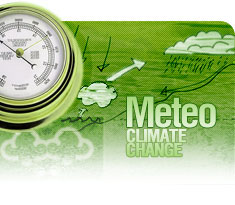http://english.peopledaily.com.cn/90001/90777/90855/7280092.html
Governments risk adopting policies that increase people's vulnerability to climate change because of a general prejudice against migration, says a new report published on Friday.
The study by the International Institute for Environment and Development (IIED) refutes alarmist predictions about hundreds of millions of people being forced to migrate across international borders because of climate change.
The research, which includes case studies from Bolivia, Senegal and Tanzania, found no evidence that environmental degradation linked to climate change would result in large flows of international migrants.
"People affected by environmental degradation rarely moved across borders," says the study's author Dr Cecilia Tacoli. "Instead they moved to other rural areas or to local towns, often temporarily."
Instead, social and economic factors play a bigger role in who moves, where they move and for how long -- and most movements are of short durations and short distances.
"Such migrants can reduce their vulnerability by diversifying their sources of income and reducing their dependence on natural resources, but governments often view migrants as a problem and either provide little support or actively discourage them from moving," Tacoli says.
The study urges governments to understand the social and economic factors that shape migration so they can develop policies that support the strategies poor people use to adapt to environmental degradation.
"Policymakers need to redefine migration and see it as a valuable adaptive response to environmental risks and not as problem that needs to be tackled," says Tacoli.
"We need rational, realistic responses to climate-change, not knee-jerk reactions that create new problems and increase vulnerability," says Tacoli.
For governments in climate-vulnerable countries, this means policies that protect livelihoods in migrants' home areas, with specific attention to ensuring access to land; support migrants at destination, making sure that they have adequate representation and that their rights are respected.
The policies should also avoid vicious cycles, whereby migration is the consequence not of climate change itself, but of policies created to address climate change.
The study notes that when people do move internationally they often invest in their home countries in ways that can further have an impact on internal movement.
This is because such investments tend to be made in areas with potential for economic growth and, in many cases, in non- agricultural activities, such as construction and businesses in urban centers, especially in small and intermediate ones where land is cheaper.
Also, when international migrants send money home this can be used to pay temporary laborers to work on family farms.
Both these sectors are major employers of temporary migrants from environmentally fragile areas and can reduce people's vulnerability to climate change.
"Both the relatively common internal migration and the relatively rare international migration can support poor people who are at risk from climate change," says Tacoli.
"Migration is part of the solution, not part of the problem as many people think," the study says.
|



 Română
Română English
English


